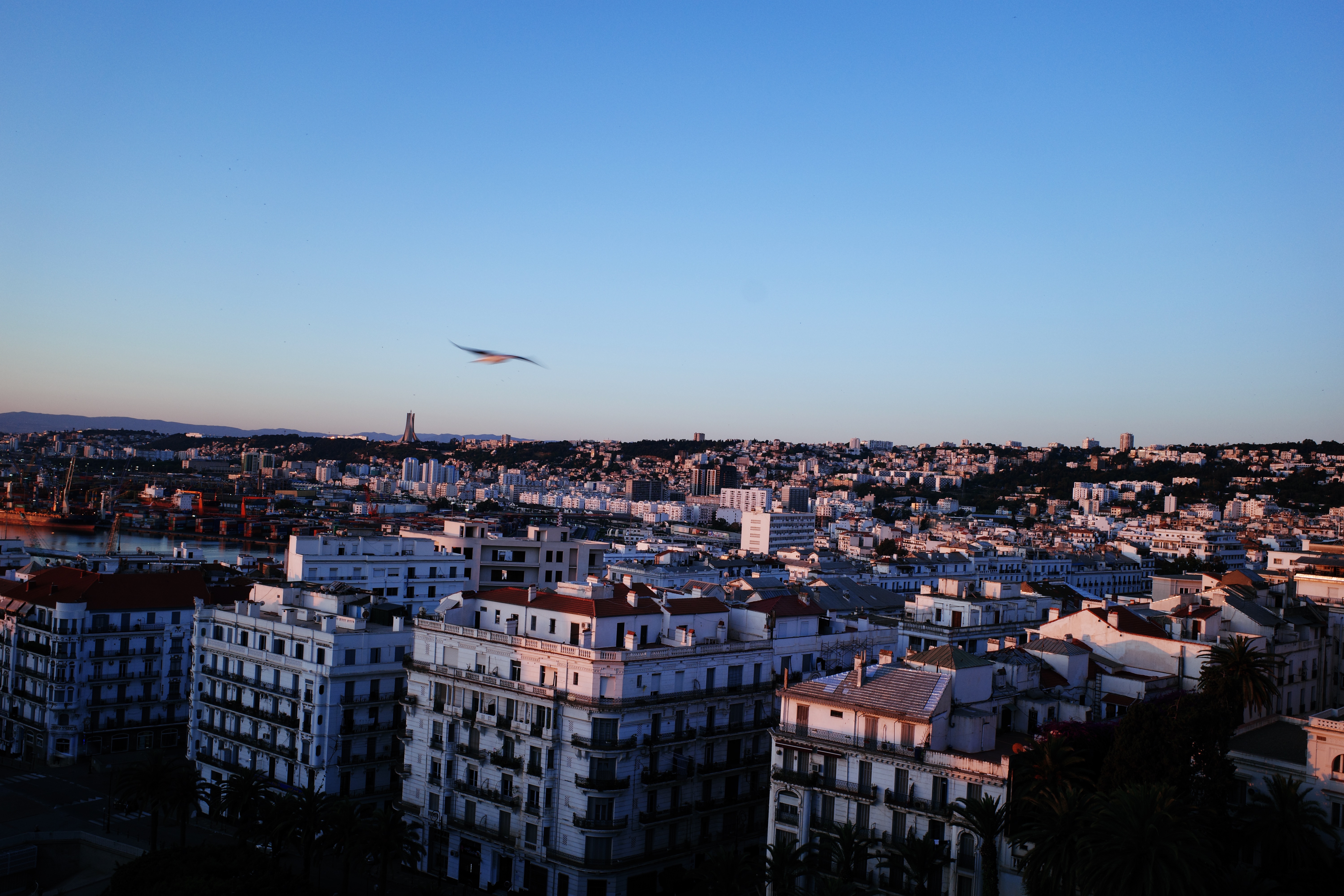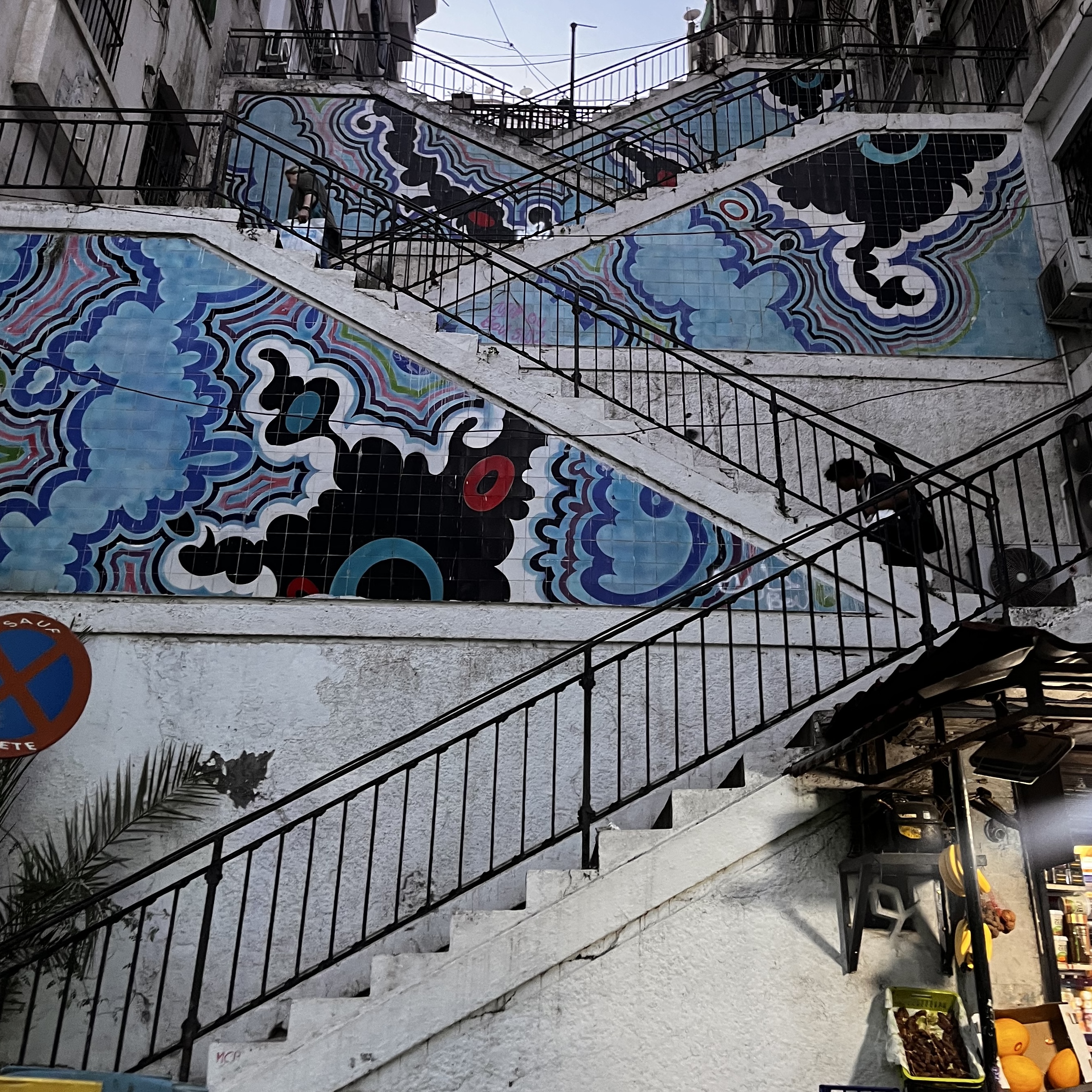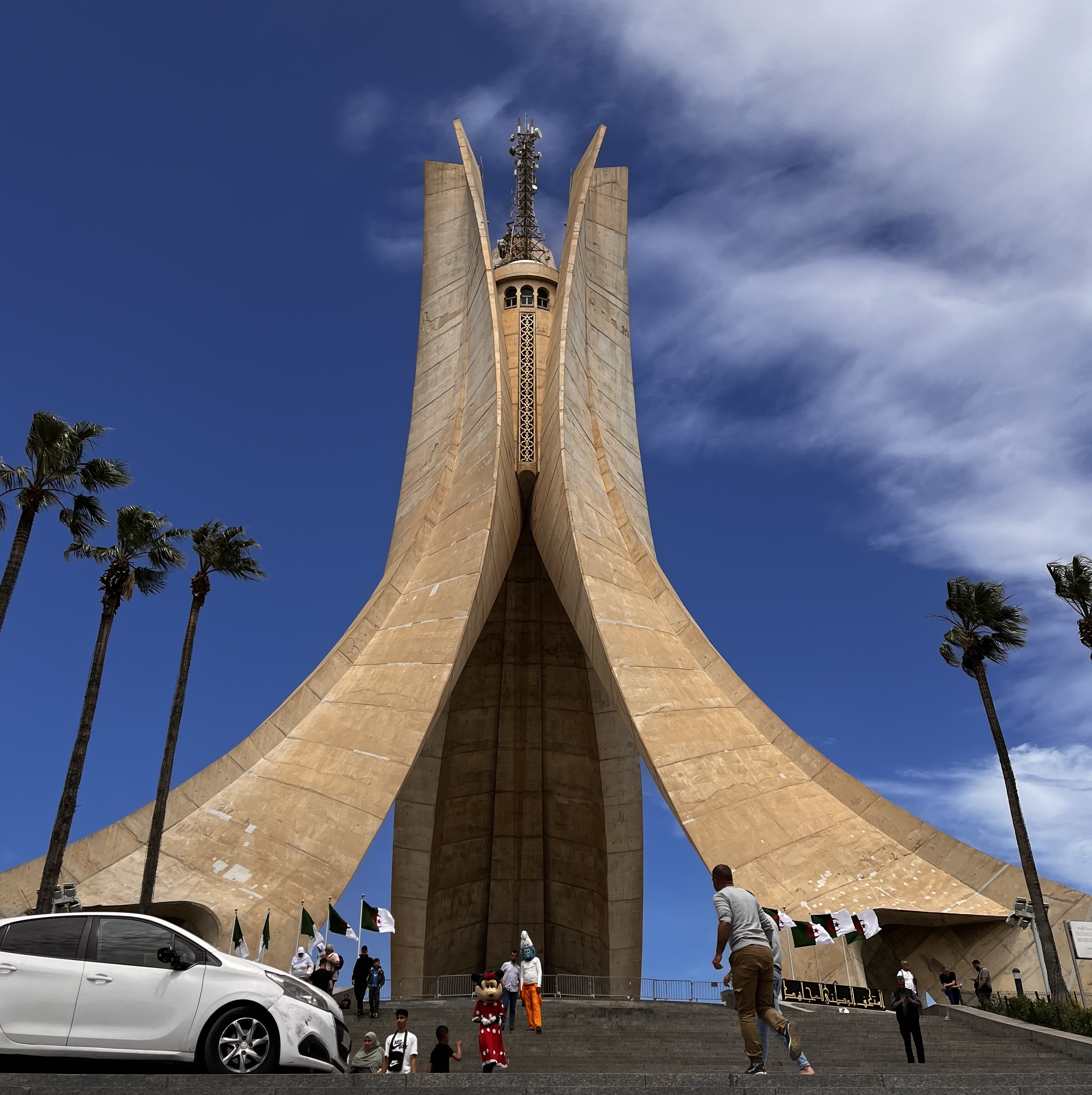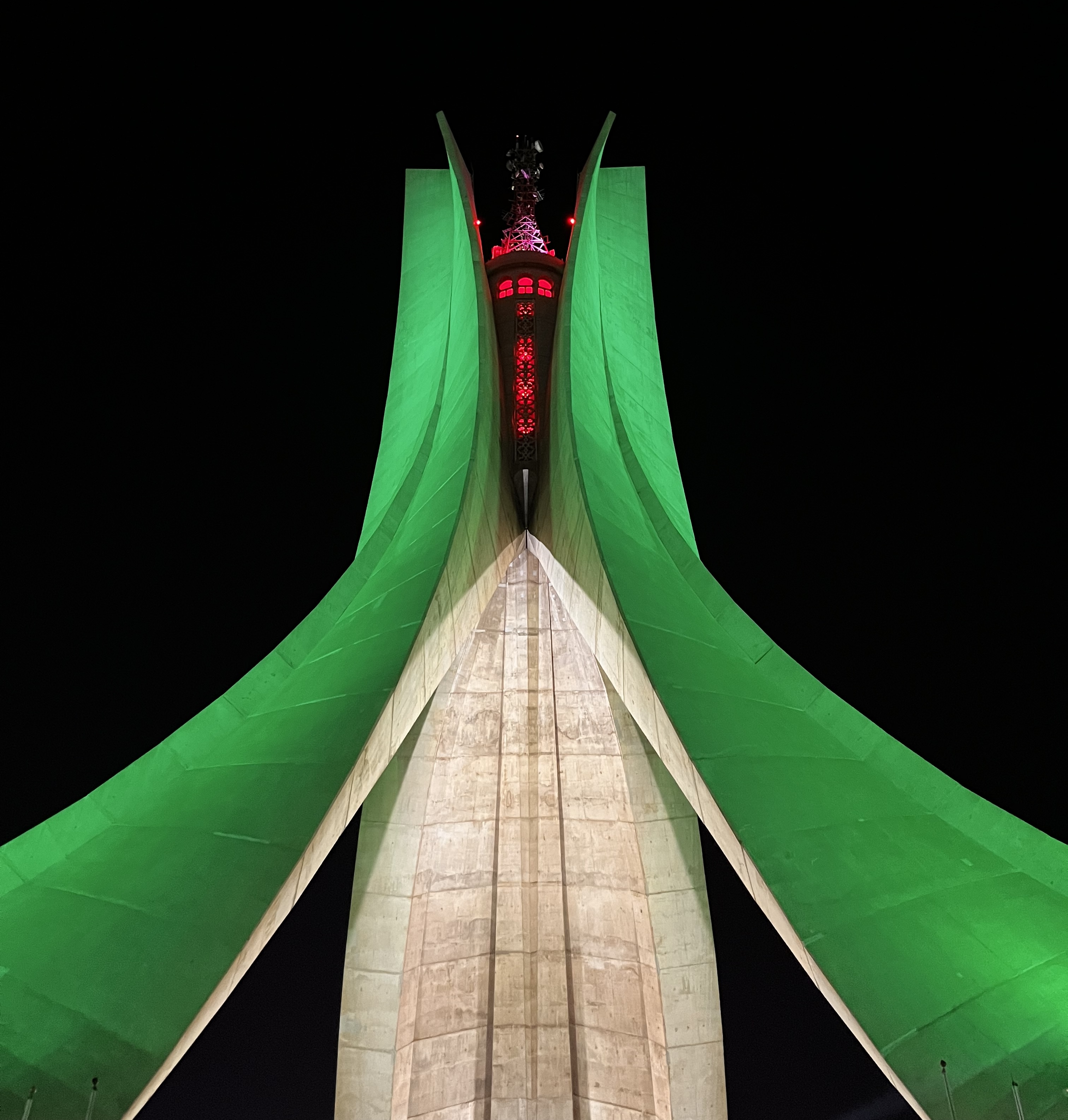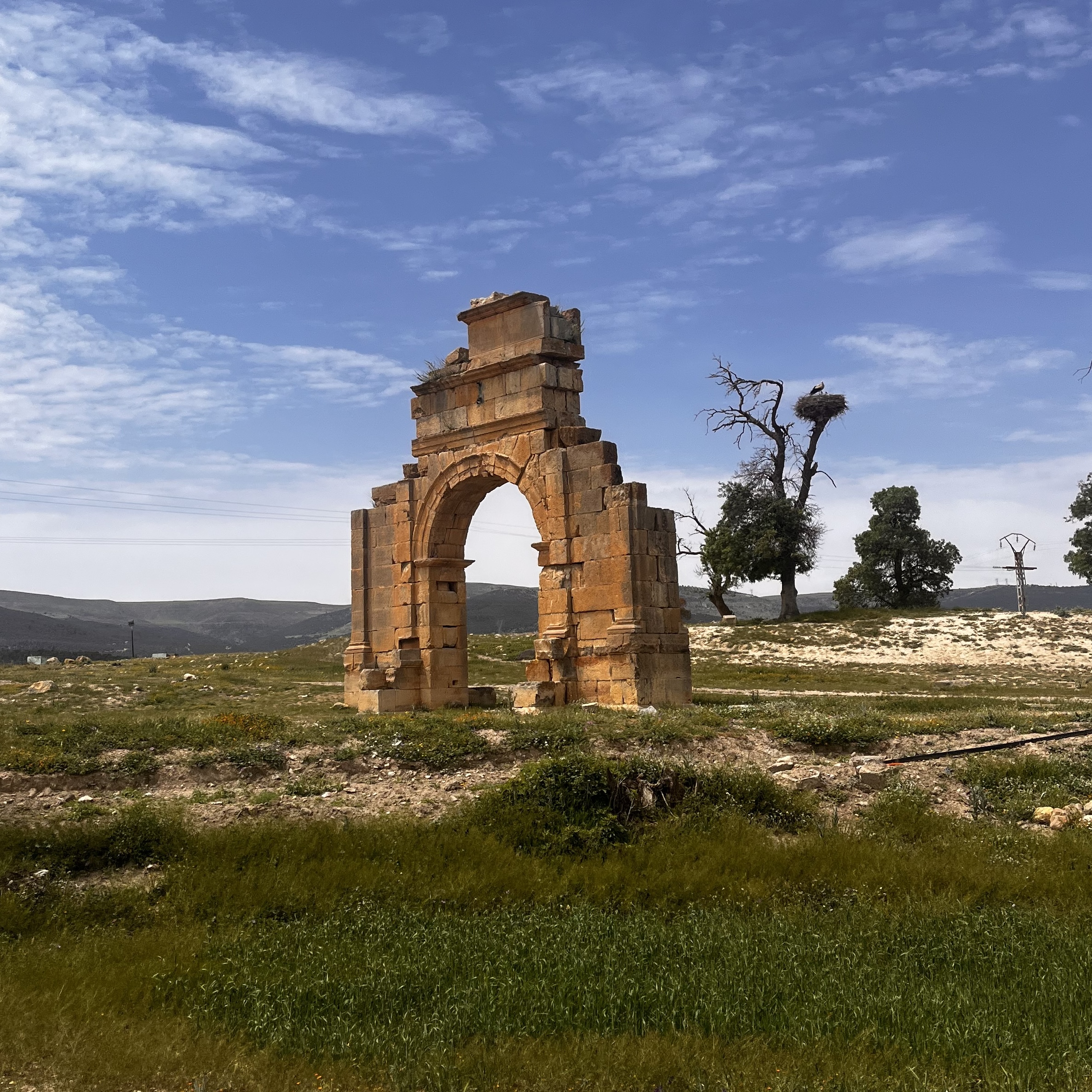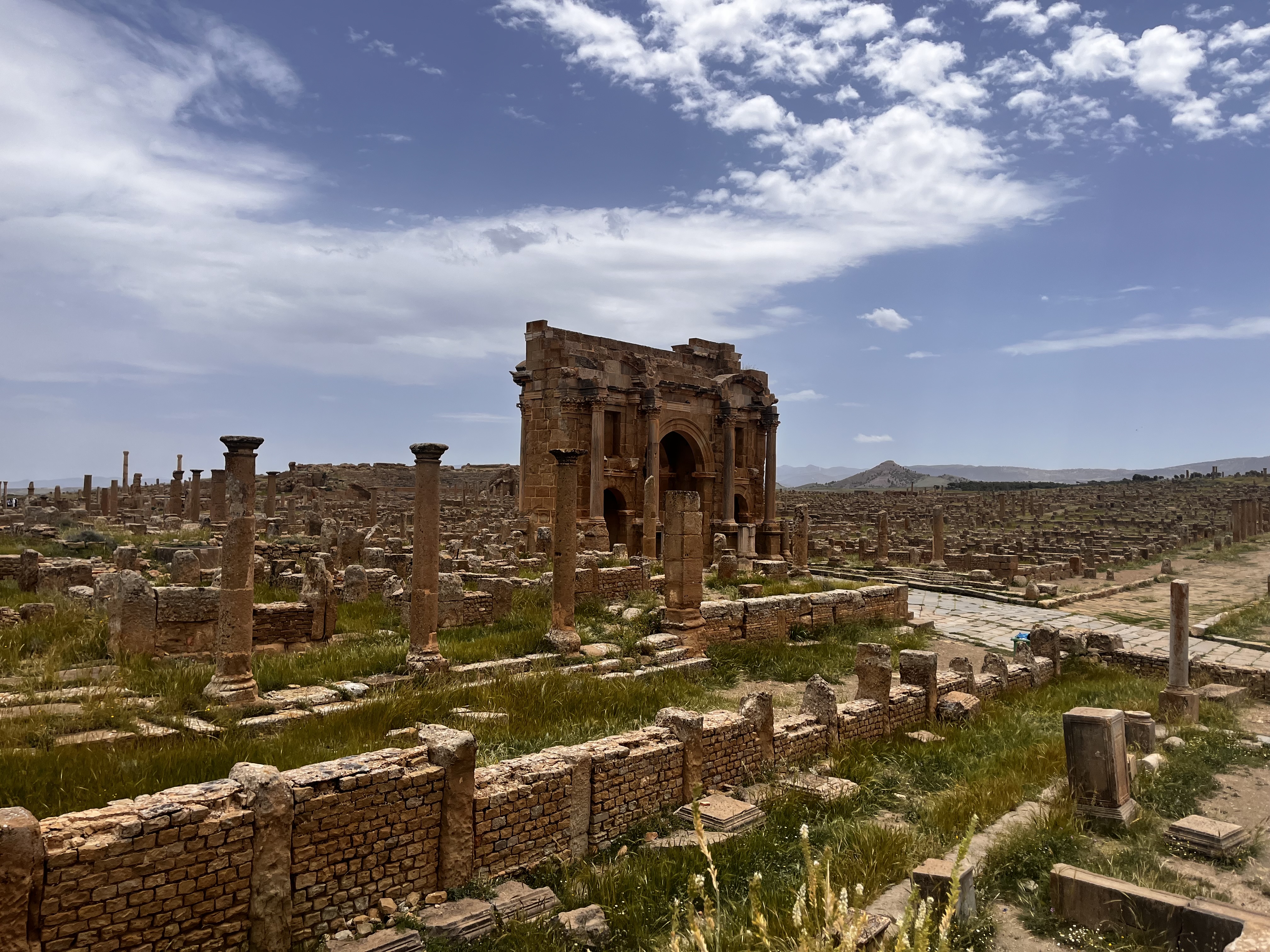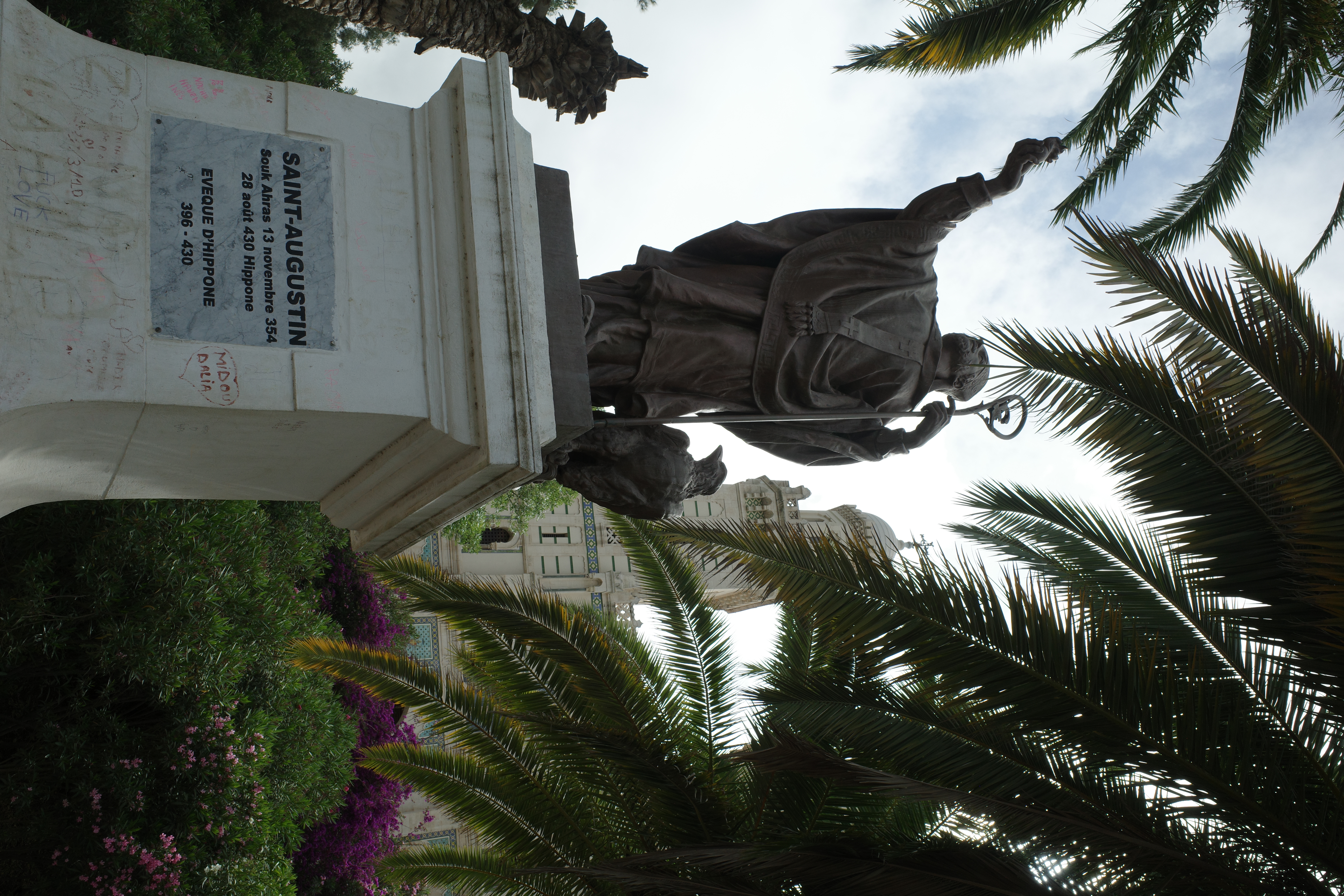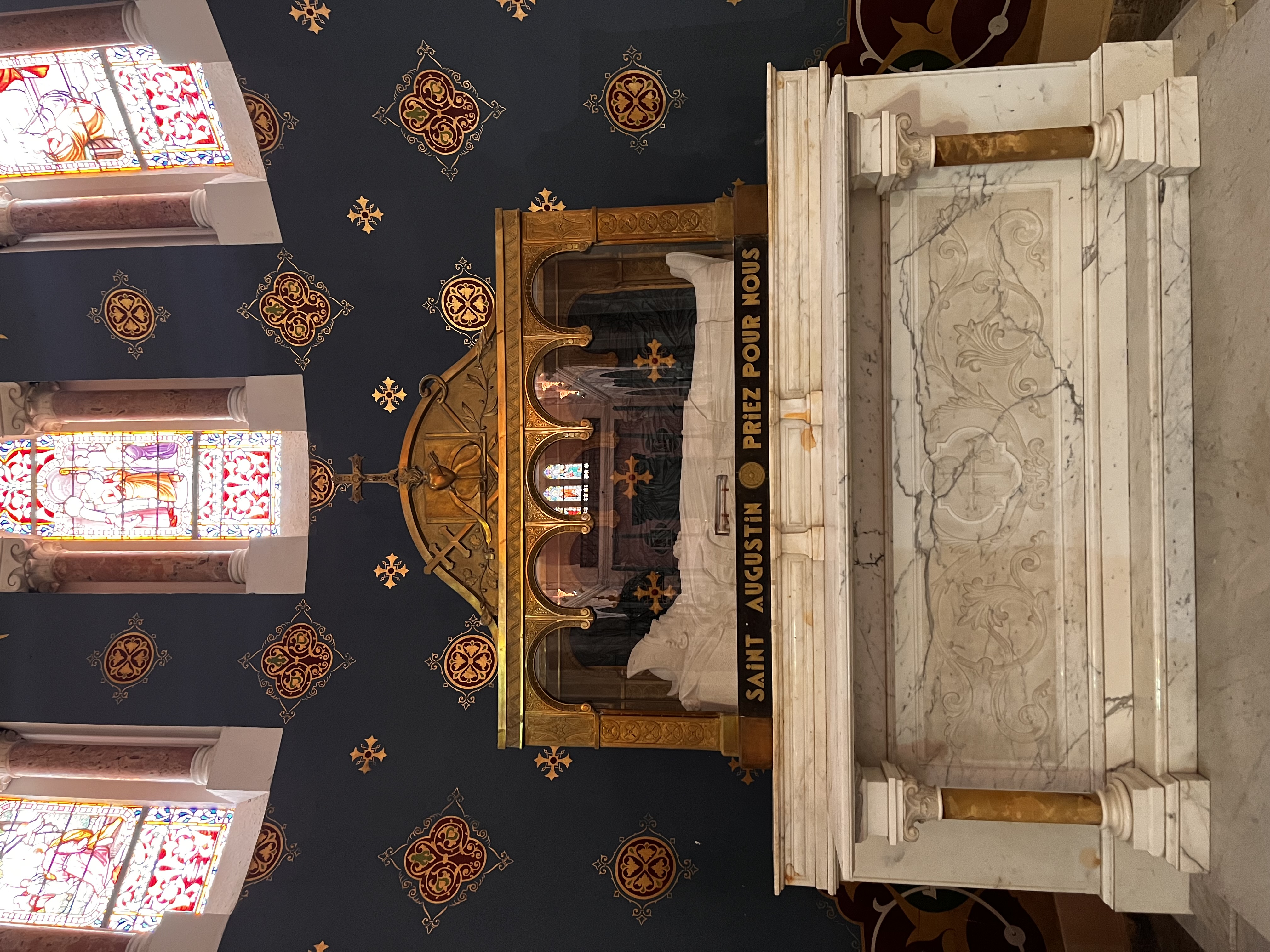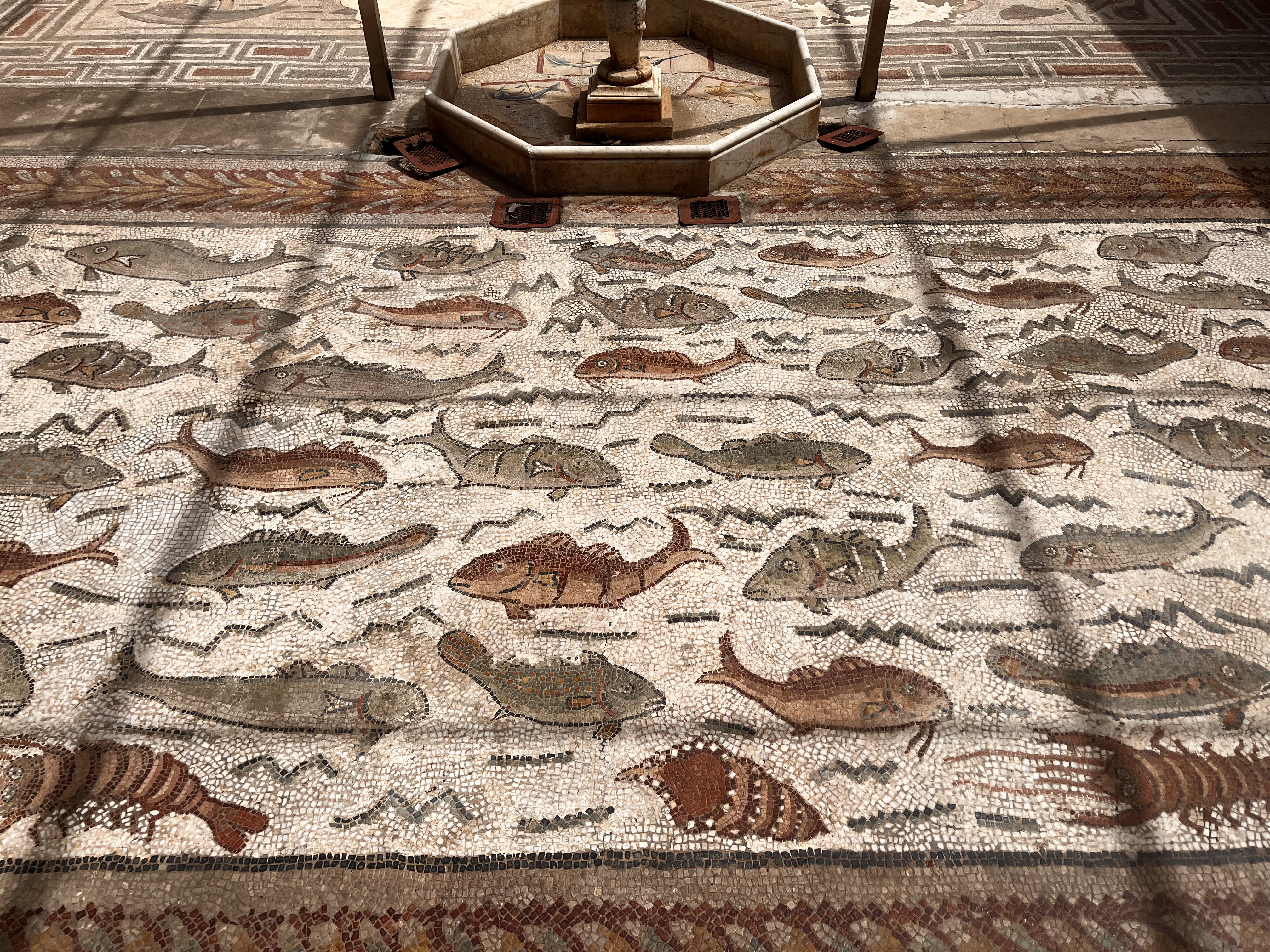Overlooking central Algiers. May 2025.
I went to Algeria in early May this year, originally intending to travel with a friend but ending up alone due to some bumbling bureaucratic circumstances. Algeria is vast—the largest Arab country—a fact you truly appreciate when hopping between cities in tiny ATR 72 planes.
Algeria has a reputation for being somewhat closed-off. Securing my visa in New York was straightforward but required multiple visits to the consulate before finally being granted.
Landing in Algiers felt strangely like a homecoming, despite every taxi driver enthusiastically explaining what the Arab world is like—as if it were my first visit. Still, it had the familiar charm of other vibrant Arab cities, though I was taken aback by the complete absence of shisha culture.
Various Algiers street art.
Algiers immediately felt welcoming. It’s the most functional Arab city I've encountered—people visibly employed, a functioning (albeit compact) metro system, and surprisingly clean streets. It's more expansive than initial impressions suggest, dotted with beautiful mosques, intriguing street art, and detailed mosaics. The air held a sweet Mediterranean scent, mingled with enticing aromas from street food vendors at every corner. Algerians clearly cherish their books, evident in bustling bookshops and roadside stalls packed with literature in both French and Arabic.
It's also clear Algerians expect foreigners to speak French. Every interaction began in French and continued in French despite my consistent replies in Arabic. Amusingly, when asking for prices, Algerians invariably stated numbers in French, even mid-conversation in Arabic—as if translating numbers into Arabic required a deliberate mental shift.
The city quiets early; by 10 or 11 pm, lively streets empty as everyone retreats home. Bars, though present, felt oddly secretive, with locked doors, shaded windows, and surprisingly high prices. Nevertheless, I enjoyed sampling local Beaufort beer. Unlike Iraq, restaurants here don't enforce male/family segregation, and power outages are notably absent.
Martyr's monument.
Having previously read Alistair Horne's "A Savage War of Peace," it became vividly clear how Frantz Fanon had his revelations here. The city retains an unmistakable French influence, balanced by the visible presence of Amazeigh script throughout Algiers1. The city’s beauty is striking—from meticulously preserved Roman mosaics in museums to playful mosaic art adorning public spaces.
The Martyrs' Memorial emphasizes French colonial atrocities, clearly delineating history at the point of independence in 1962. Traces of the post-independence civil war have largely disappeared, leaving the city remarkably undisturbed and functional.
Constantine cliffs.
Constantine, compact yet spectacular, offered dramatic vistas with bridges arching across deep cliffs and valleys. An Algerian teacher I met there praised the extensive government subsidies, making life affordable and comfortable. Known as the City of Bridges, Constantine lives up to its nickname with numerous picturesque crossings linking neighborhoods across sheer cliffs. Driving from Constantine to Timgad, through sweeping plains and mountainous backdrops reminiscent of Iraq, highlighted Algeria’s remarkable geographic diversity.
On the road to Timgad.
Timgad Eastern gate.
Timgad presented another delightful surprise—stunningly well-preserved Roman ruins sprawled across a landscape, mosaics glittering under the sunlight, silent testaments to an ancient civilization. Roman mosaics seemed to spontaneously appear throughout my journey, casual reminders of Algeria’s deep history.
Outside the basilica.
Annaba had its own quiet charm, marked by the stunning Saint Augustine's Basilica. Here, I unexpectedly encountered a thriving community of Christian students from Cameroon. Nearby, the ruins of Hippo Regius revealed dramatic Roman carvings etched deeply into the earth. Although the basilica grounds unfortunately showed signs of neglect, the relics within remained compelling, especially poignant as I visited on the day Pope Leo, notably an Augustinian himself, made an announcement that underscored my religious motivations for visiting Algeria.
The man himself.
Algeria left a profound impression—beautiful, complex, and intriguingly contradictory. Though nightlife might be understated, the country’s rich historical tapestry, welcoming atmosphere, and distinct character made it somewhere I could comfortably imagine returning to for a longer stay, to unwind, explore, and perhaps even write.
My favorite Roman mosaic of fish in Algiers.
.png)

